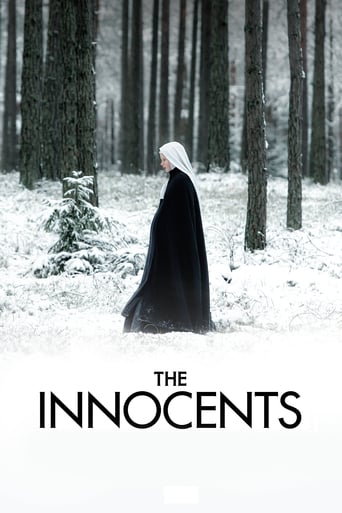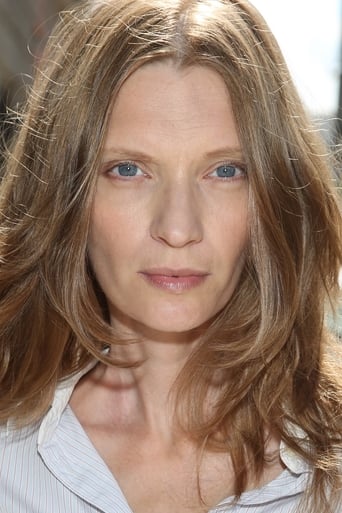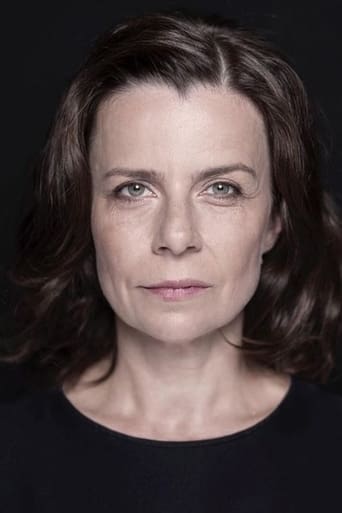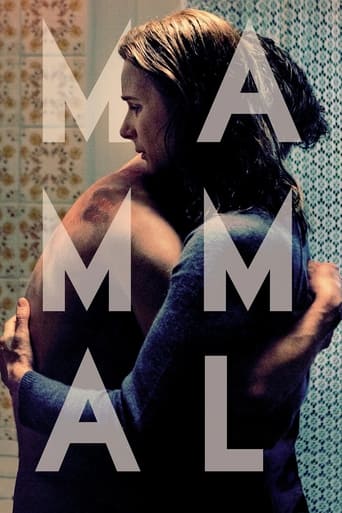The Innocents (2016)
Poland, 1945. Mathilde, a young French Red Cross doctor, is on a mission to help the war survivors. When a nun seeks for her help, she is brought to a convent where several pregnant sisters are hiding, unable to reconcile their faith with their pregnancy. Mathilde becomes their only hope.
Watch Trailer
Cast


Similar titles
Reviews
Touches You
Very interesting film. Was caught on the premise when seeing the trailer but unsure as to what the outcome would be for the showing. As it turns out, it was a very good film.
At first rather annoying in its heavy emphasis on reenactments, this movie ultimately proves fascinating, simply because the complicated, highly dramatic tale it tells still almost defies belief.
The film never slows down or bores, plunging from one harrowing sequence to the next.
The Innocents is a French film by director Anne Fontaine inspired by true events. The protagonist is a French Red Cross student doctor, Mathilde Beaulieu (Lou de Laâge) who is summoned to a convent by the beleaguered Sister Maria (Agata Buzek), in Warsaw, Poland, right after the end of War War II. Mathilde is based on a real doctor, Madeleine Pauliac, who headed a hospital in that area. Mathilde soon learns from the Mother Superior (Agata Kulesza) that the nuns were systematically raped by Soviet troops who are still in the area and threaten to come back and commit more atrocious crimes. In addition, at least seven of the nuns are pregnant and it's the Mother Superior who is bent on preventing the shameful news from getting out-fearing that the stigma will lead to her flock's excommunication. Mathilde is thus sworn to secrecy and bonds with Sister Maria. Their relationship is one of the strong points of the film, as Mathilde represents science and the outside world and Maria, spirituality. Both learn from one another and in the end, both heroically deliver children of the pregnant nuns. Much of what happens at the convent is absorbing, especially the way each nun copes with terrible adversity. Not everything that happens has a happy ending (one nun commits suicide by jumping from a high precipice in the convent). There are also two harrowing scenes, including one in which Soviet troops reappear and are craftily rebuffed after Mathilde makes up a phony story about a typhus outbreak in the convent. What's more Mathilde is almost raped by a Soviet soldier after her jeep is stopped at a checkpoint. The central weakness of the script is the over-the-top portrayal of the Mother Superior, who is bent on protecting the reputation of the order by falsely informing her charges that she's been putting up the newly minted infants for adoption. In truth, she brings the babies to outside the forest, exposing them to the elements, allowing them to die. Did I believe that this is what actually happened in real life? Not for a second but I suppose the scenarists here needed a shocking turn of events to spice up the denouement. There's also an ineffective subplot involving Mathilde's boss, a young Jewish doctor, who briefly beds her and later joins her at the convent where he assists in another medical emergency. He's only tangentially integrated into the plot and ultimately has little to do but encourage the main character. The Innocents ends on a very hopeful note when the nuns adopt a bunch of kids who have been staying with the Red Cross, hiding the fact that their own children were born under circumstances that could have led to scandal and dissolution of convent life. Some may find the ending a bit maudlin but it couldn't have hurt the film's chances at the box office. Despite the melodramatic excess of the antagonist, The Innocents proves to be fairly gripping, with excellent acting performances all around.
To Mrs Anne Fontaine (as finally responsible for what is said in the movie). In the one third of the movie when Mathilde (the beautiful) and French Jewish doctor Samuel played by Vincent Macaigne are in bed.She is asking him about Poles. His answer is: " They got what they deserved with Russians and the Germans"This is disgusting and unacceptable sentence if you care for the facts.I am requesting Mrs Anne Fontaine that this sentence will be taken out of the movie. Thank you Sincerely Jan Walecki I am waiting for prompt answer.Thank you
First thing I thought when I watch the movie was this: When your lose faith in the world, what can you do? what you can keep in your life before? That is the question the characters asked and tried to find the answer during the movie.Mathilde Beaulieu (Lou de Laâge) just drop in the nunnery's life during the war, and find dreadful secret between the walls. She assisted the nuns to get them-self the horrible events in the past months. The movie presented women destiny in war circumstances. We see a doctor how to help people and tried to keep his profession, also we see women whose attempted to keep their faith, pureness and solemn promise to god. Two world to see in the movie, two different space and life. The first is the outside world we inlook a the Red Cross life in the eyes of a woman who work there. The other is the nunnery's world. This is a different lives, it closed full with rules. The events the happened in the past to query this. Women therein space struggle between two unalike thought. What can they do? To keep their faith before or give up and find another? Someone give up and live this life, some stay and keep going the old way. If you want to see women destiny and strong women characters you have to see this movie. In this movie have wonderful women characters.
The French film Les innocentes was shown in the U.S. with the translated title The Innocents (2016). Anne Fontaine directed this powerful movie.The year is 1945, just after the end of World War II. A French Red Cross unit is sent into Poland. Their mission was to care for French survivors of the camps. Among the Red Cross staff is a young medical student, Mathilde Beaulieu, played by Lou de Laâge. Early in the film, we learn a terrible secret about the nuns in a nearby convent. Many of them are pregnant, because they were raped by Russian soldiers. Mathilde learns of this, and she is allowed to enter the convent, where she meets Sister Maria, a French-speaking nun played by Agata Buzek. To go further with the plot would diminish the movie, so I'll stop at that point. Let me just say that the situation is even worse than it seems.This is a movie that is not to be missed. Yes, it's grim, but postwar Poland was a grim place. The film takes place in winter, so snow covers everything, and even the Red Cross staff is miserable. Obviously, for the nuns in the convent, everything is much more terrible.The acting in the film by the two lead actors is outstanding. Also, the ensemble acting was wonderful. There were no weak links, and no obviously staged scenes. Everything looked real--cold, dark, and threatening--but real.This is one of those movies where many frames could be lifted from the film and used as a photograph. My compliments to cinematographer Caroline Champetier, who did a brilliant job.We saw this film at the excellent Little Theatre in Rochester, NY. It will work well enough on the small screen, but the large screen gives you a better sense of the isolation of the convent. The nuns don't expect help from outside. They only expect harm to come to them. Mathilde is the exception, and they (and we) understand that. Small screen or large screen, don't miss this movie!P.S. The film is based on the experiences of a French doctor--Madeleine Jeanne Marie Pauliac. She was a member of the French Resistance, and did, indeed work tirelessly in Poland after the war. For artistic reasons, director Fontaine focused on Dr. Pauliac's work with the pregnant nuns. The rest of her accomplishments would also make a fascinating movie.















